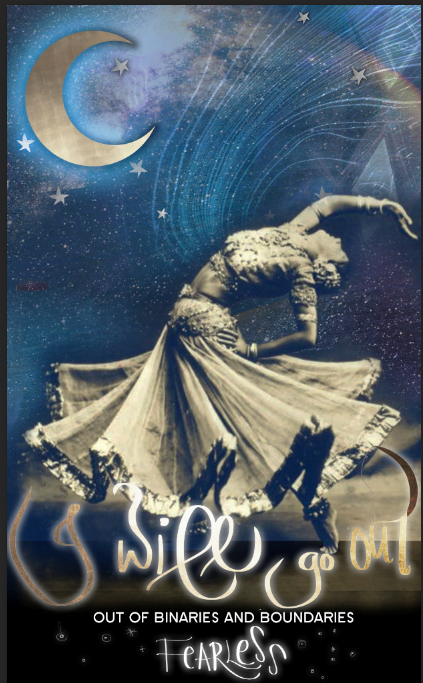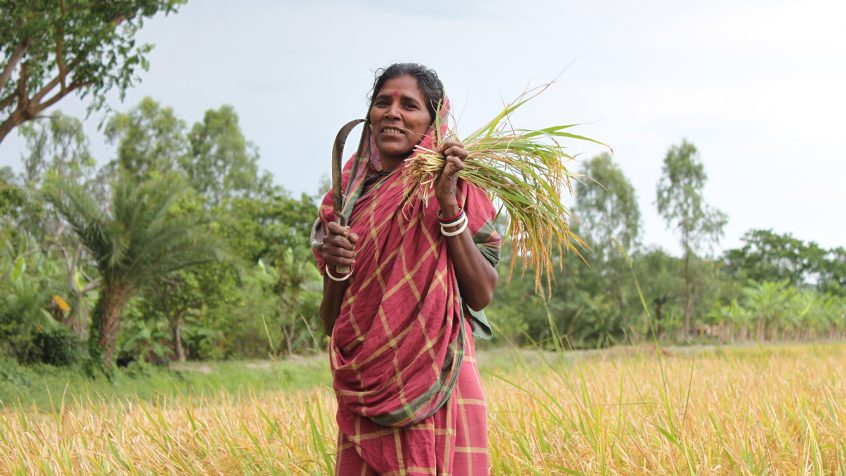Q1: What is the #IWillGoOut (IWGO) event about?
A1: IWGO is a nation-wide march to be held on January 21st, 2017 to raise questions about fair and equitable access to public spaces by women and other marginalised communities. The event is organised by a collective of individuals affiliated to various institutions and organisations. The marches are being planned across over 20 cities and towns including Bangalore, Delhi, Pune, Chennai, Mumbai, Kolkata, Hyderabad, Lucknow, Puducherry, Silchar, Nagpur, Ahmedabad, Jaipur, Bhopal, Udaipur, Kochi and Karimganj. Individuals from Kashmir, who will be unable to march have pledged their support through social media and will be running online campaigns simultaneously.
Details of locations and cities will be updated and modified on our Facebook page. This event is purely independent of any external funding. While several organisations have pledged their support and are joining the movement, this remains a fully democratic and leaderless event, driven by the contribution of several individuals acting in concert.
Q2: Why are these marches being carried out? What is the message IWGO wants to give to society?
A2: Despite the monumental shock and horror of the nation after the brutal gang rape and death of Jyoti Singh Pandey in 2012, crimes against women and the impunity with which they are carried out refuse to die down. Stories of sexual harassment in Bangalore on New Year’s eve shocked the nation once again, and showed how even in this day and age women do not have the license to celebrate freely and safely. Around the same time, the NHRC released a report stating how the Chattisgarh police was guilty of abusing 16 women in those areas. We march, in outrage, against the various violences women are subjected to in their quest to be “public”, and also the unspeakable violence of being restricted indoors for fear of “the outside”.
We march peacefully but in anger against the impunity and immunity that perpetrators of sexual crimes enjoy, while the burden of safety and honour lies squarely on the women, thereby dangerously normalizing sexual harassment and misogynistic social mores. This initiative is not just a symbolic gesture to express our disappointment towards those who continue to blame the victims. It is also a step towards advocating for State accountability to ensure safety of women in public spaces. The women’s collective behind this is focussing on result oriented agitation than a merely demonstrative one.
Q3: Who are the people behind the organisation of IWGO and what is the organisational structure?
A3: A group of individuals sharing similar views of outrage against mounting cases of sexual harassment against women, decided to form a collective. Connections and relationships were fostered mainly through social media, and the numbers of people who wished to conceptualize the initiative and make it a success only kept growing in number. We started brainstorming ideas and put together a campaign against insensitive, victim blaming remarks passed by some ministers in the aftermath of the Bangalore incident. Calls started pouring in from sisters and allies across the country who shared the same perspective and wanted to channelize their outrage into action oriented petitioning. The team evolved gradually with each person contributing. A knowledge base was created using technology as a tool to connect and share ideas and improve upon them. As of now the IWGO team reach is a little over 1500 members with about 80 active participants.
Q4: What do we expect or hope to achieve?
A4: We are broadly focusing on three major issues:
1. Safety and security for women in public spaces
2. Ease of approach to report crimes committed against women
3. Compulsory Gender Sensitisation Training
Each of the cities and towns will have more specific demands that are categorized under the above mentioned points. As we recognize the fact that the solutions to curb street sexual harassment in Mumbai may not be applicable in entirety for Hyderabad or Silchar. Hence, the regional petitions. These petitions will be given to the state Police department, Ministry of Home Affairs and Women and Child Welfare Ministry at the respective states with signatures of the protestors. The petitions will be available online once submitted to the government. We will share details based on the responses we receive from the state level petitioning. We are hoping that #IWillGoOut will eventually achieve the following:
● Reclaim public spaces for women and girls;
● Ensure that women have equal access to public spaces, public modes of transport without the fear of being sexually abused or facing violence and hostility;
● Highlight poor infrastructure, poor lighting on roads, inadequate safety measure such as functioning women’s only helpline numbers that severely limit a woman’s access to public spaces, especially post dawn;
● Create a violence free world for women;
● Ensure that gender sensitization takes place in institutions, organizations and courts of law;
● Ensure inclusive and safe infrastructure that will make women’s access to public spaces easier (such as, 24 hour public transport, well-lit streets, public toilets and so on);
● Vehemently reject all sorts of victim-blaming and shaming that we often see politicians indulge in;
● Help women exercise their sense of agency and autonomy and live a life of equality, dignity and respect.
Q5: How is IWGO different from the other protests that are conducted across the world and in India for women’s rights and equality?
A5: The organisers of IWGO express their heartfelt gratitude to all their predecessors whose initiatives have brought in the changes we now enjoy. IWGO takes forward those learnings and maps contemporary questions of equitability and bodily autonomy for women to take feminist advocacy forward. IWGO as a collective managed to gather strength without any organisational funding and is spearheading marches simultaneously in over 20 regions in India on January 21st, 2017. This is being done with a long-term view that includes consultations with stakeholders on increasing safety measures and promoting bodily autonomy for women, while also conducting safety audits in selected regions. The teams are petitioning state governments with specific measures to be taken to improve infrastructure from a gendered perspective. This nationwide march is focussed on a result oriented approach than a mere demonstration.
Q6: What do you say about the people who say #NotAllMen?
A6: We are not going to thank the men who do not assault us. Privilege is often not recognised by the privileged. This is true when thinking about race, caste, class, religion, and gender. All people of privilege and in this case men need to understand their privilege and do what they can to deconstruct systems that oppress others. In the case of gender issues, men must participate in making public spaces safer for all genders. Not by acting like a protector, we don’t need protection, but by letting us be without invading our private space. You need our consent for everything that has to do with us. This is women’s collective voices. Yes, all women have experienced harassment in one form or another, whether our laws recognise it as harassment or not. And if there are a few good men, we are not here to reward them or pat their backs for not harassing us. As humans we expect our rights to be protected anyway. What the gender equal guys can do is be our allies and make sure that our voices are heard and not hijack the movement. Feminism In India addressed this brilliantly. You should take a look at this.
Q7: Why is access to public spaces important ?
A7: First we need to recognize that restricting women and girls from going out is a clear violation of rights. We condemn this on all counts. We have equal right to access public transport and spaces without any fear. Today women hesitate to venture out alone because the streets are not safe. But the underlying problem is the law enforcement should ensure that streets are safe for all genders.
In rural India, girl students are forced to drop out from schools and colleges due to street sexual harassment. Current situation of living in fear is detrimental for the growth of the nation. There is only one way to eradicate and uproot the fear – Go out and reclaim public spaces for women. This is our right. We women chose to exercise our right, and it shouldn’t be anyone’s problem what time of the night or day it or what we are wearing when we go out. Ensuring access to safe public spaces for women is important because the absence of women in public spaces normalises the notion behind sexual harassment and violence.
Without the presence of women and girls in public spaces, the culture of victim blaming continues as the responsibility of blame falls on the survivor of harassment for being out in those public spaces. This is best captured by this quote by Shilpa Phadke,
“What many people don’t seem to get is that the choice is not between violence and no violence. Even when one’s homes are not violent, the choice being offered is either to go out in public and negotiate violence or to experience the violence of restricted mobility. Some might choose to go and and negotiate the violence. Some might choose to stay in and feel enraged or just resigned to this state of affairs. But this rage and resignation are also part of the experience of violence.”
Q8: How to tackle victim blaming after incidents of sexual harassment?
A8: The answer lies in changing the narrative and meticulously poking loopholes in the patriarchal notions of honour, misguided western misappropriation, attributing blame to women’s clothing and questioning her movements after dark. It is important to point out that rape is not about how women supposedly make themselves vulnerable, but it is about power. Small children, old women, men and tribal women are raped at a harrowing frequency— notions of western dressing etc clearly do not explain these heinous crimes. We must therefore talk about rape not just as the result of a particular set of circumstances, but as a result of a systemic objectified view of women and other marginalised communities.
Q9: What can a group of women like this do about reducing gender-based violence?
A9: Gender-based violence is not a women’s issue. It is in fact, a men’s issue as violence against women is incited by men. A quick look at NCRB data confirms that men commit the majority of gender-based crimes. While there are women who are criminals too, but the number is miniscule compared to male criminals. So, to start with we are steering the conversation towards men, pointing out that something is inherently wrong or missing in the way we are addressing violence against women. Our government, society, culture and everything we did so far failed to look it violence against women in this direction. It is time to recognise where the problem is originating from and address it.
Q10: Who all can join your initiative?
A10: The initiative is focussed primarily on the sexual harassment of women and other marginalised communities and we are vigorously calling out to all women to join the march in large numbers. Members of the LGBTQIA (Lesbian, Gay, Bisexual, Transgender, Queer, Intersex and Asexual) community are also encouraged to join as they also face violence from heteronormative communities. Male allies are welcome to support the initiative but without undermining the violence and sexual harassment meted out on women.
Q11: What can the government do to make women feel safe in public spaces?
A11: ● Have a women’s only help-line number that is functioning across all states and cities. Currently 103 works only in select cities.
● Did you know that it takes 4 telephone calls to report a sexual harassment incident to She Teams in Hyderabad? This should be made easier.
● Release a sex offenders’ registry online of those convicted under the relevant sections of the IPC and make it public. We don’t see a reason why we should protect the offenders’ identities.
● Ensure survivors of sexual abuse have free and full access to quality healthcare in Government and Private Hospitals.
● Use the money allocated under the Nirbhaya Scheme, currently the corpus of Rs. 3000 crore is not being allocated for on-ground women’s safety measures or towards rape survivors.
● Improve facilities and security at safe houses and shelters which offer protection to abused women.
● Make Comprehensive Sex Education and Gender Equality classes mandatory in schools and colleges.
● Ensure that action is against those police officials who wrongfully deny filing of FIR for cases of sexual offence and hold them accountable.
● Ensure that a victim’s identity is not disclosed by media personnel. Even though we have provisions in law that expressly forbid victim’s identity being disclosed, we do see cases where this is breached and Government or Police Authorities not taking Suo Moto cognizance of the same.
● Increase the number of fast track courts that handle cases of sexual abuse with victim protection program.
● Focus on increasing the conviction rate for crimes against women, current conviction rate is in the 20% range. We surely can do better than this.
● Ensure streets are well lit up with clean and walkable footpaths and substantially increase the number of CCTV cameras in public places.
● Spread awareness on how women can file FIR’s online against certain cases of sexual abuse.
● Sensitize police personnel and ensure that they do not put the survivor/ victim’s family through lines of questioning that further re-victimises them and subjecting them to victim-blaming and shaming.
● Refrain from linking sexual offenses to the way women dress or to culture.
Q12. What can men do to make women feel safer?
A12: Most of us could say, ‘just let us be’. But we agree that the responsibility of making public spaces safer is with men too. We want them to be our allies. Respecting women doesn’t mean that women should be put on a pedestal and worshipped as goddesses. It just means understanding and acknowledging that we are equals and are entitled to have our own opinions about sexuality. It goes without saying that we will be very happy if they just stop harassing us. In addition men can,
● Stop street harassment in all forms, including leering, catcalling, passing comments, touching without consent, exposing (flashing) themselves and so on.
● Refusing to participate in street harassment and overcoming peer pressure in that aspect.
● Understand consent and equate it to “full enthusiastic consent”.
● Take ‘No’ for an answer gracefully and leave us be.
● Be aware of the physical space they take up in public. Respect personal space of others and not intrude into that.
● Call out other men harassing others to reinforce moral support to the victims of harassment.
● Refuse to use sexist language, and call out men who do. Hyper-sexualizing language often leads to objectifying women through language and gesture.
● Engage in discussing how detrimental male entitlement and patriarchy is with other men and boys.
● Teach boys about consent with age appropriate examples and exercises.
● Understand that harassing women equates to misogyny, Acknowledging without arguing that women and other genders endure harassment everyday is a good place to start.
● Stop saying ‘Not All Men’, and do a reality check on crimes committed by men compared to other genders
Q13. How do you intend to address internalized misogyny?
A13: We see that Gender sensitization is the only way that can gradually change our perspective towards women and other genders. This can be done with the help of political will and strong advocacy of compulsory of Gender Sensitization campaign. Our petition recommends this to the state administration.
Q14. IWGO Post event strategy
A14: National Manifesto to be presented to the president with region specific petitions of all our demands to curb street harassment and promote women’s right to public spaces in India. A film contest helping us capture pan-India issues around street harassment the winning entries will be a part of the main film on the movement. Date will be announced post Jan 21st.
For more information on events being planned in your city or town, do like our Facebook page and stay tuned for updates.
To help organise events in your city/town/neighbourhood reach out to us at iwillgoout2017@gmail.com.
See all signatories of #IWillGoOut here.
Also read: Official Statement By The #IWillGoOut Collective
Also read: Why Women In India Are Marching On January 21? #IWillGoOut
About the author(s)
Guest Writers are writers who occasionally write on FII.




